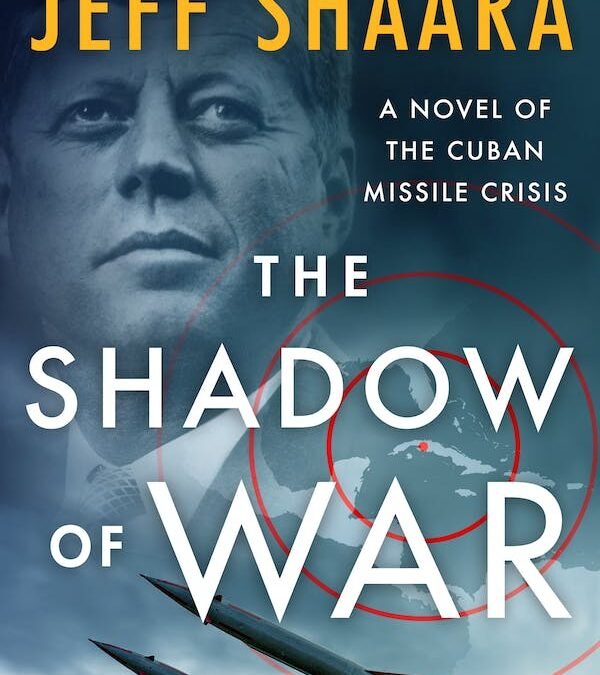
Book Review of The Shadow of War: A Novel of the Cuban Missile Crisis
Review of The Shadow of War: A Novel of the Cuban Missile Crisis by Jeff Shaara
From the moment I picked up The Shadow of War, a novel tackling one of the most perilous standoffs in history, I was drawn in by the weight of its premise. Written by Jeff Shaara, renowned for his vivid portrayals of historical events, this book offers a gripping examination of the Cuban Missile Crisis that feels both personal and immediate in its delivery. As I navigated through its pages, I found myself reflecting not only on the monumental decisions made by global leaders but also on how those decisions rippled through the lives of ordinary people.
Shaara takes us into the minds of two titans of history: President John F. Kennedy and Soviet Premier Nikita Khrushchev. In an arresting moment, Khrushchev muses, “I have never felt this way before, never truly felt the weight of this office.” His acknowledgment of the precarious balance between power and responsibility reverberated with me. The stakes were unimaginably high, and Shaara encapsulated that tension beautifully, evoking my own anxieties about leadership and the heavy burden of choices that could lead to global catastrophe. Similarly, Kennedy’s reflections on the implications of military action provoke deep empathy and respect for a man who stood at the crossroads of potential annihilation.
The novel dives deep into the human experience behind the political machinations. Joseph Russo, an English professor in Tallahassee, becomes our lens into the lives of everyday families during this crisis. His words, “I have faith in the president… that he’ll remember there are a whole lot of people counting on him,” encapsulate the collective hope born from fear. Through Russo, I was reminded that the stakes of history are never merely abstract—they are lived, felt, and borne on the shoulders of individuals like him.
Shaara’s writing is both meticulous and evocative. His narrative pacing kept me on edge, each chapter feeling like an impending turn of events that could tilt the world toward war or peace. The dialogues are crisp and insightful, vividly illustrating the gravity of decisions made in those tense days of October 1962. Phrases like “Our goal is not the victory of might, but the vindication of right” resonate profoundly, serving as a reminder that the essence of leadership isn’t just about power but about moral clarity.
Additionally, the parallel threads of individual stories—those of U.S. sailors, a Soviet submarine crew, and General Issa Pliyev—add a rich dimension to the narrative. These vignettes build a broader tapestry of the crisis, grounding the historical events in the real anecdotes of those who played a part, whether they knew it or not.
In conclusion, The Shadow of War is not just for history buffs or readers interested in military strategy; it’s for anyone who appreciates the intricate dance of diplomacy and the personal toll of global conflict. Shaara’s skill in weaving together the lives of both prominent leaders and ordinary families illustrates how leadership decisions resonate far beyond their immediate circles. This book left me reflecting on the precarious tightrope that leaders walk and reminded me of the vital importance of courage and wisdom in decision-making.
If you’re in the mood for a novel that marries rich historical detail with heartfelt human stories, The Shadow of War is a must-read that promises to stay with you long after the final page.
Discover more about The Shadow of War: A Novel of the Cuban Missile Crisis on GoodReads >>






